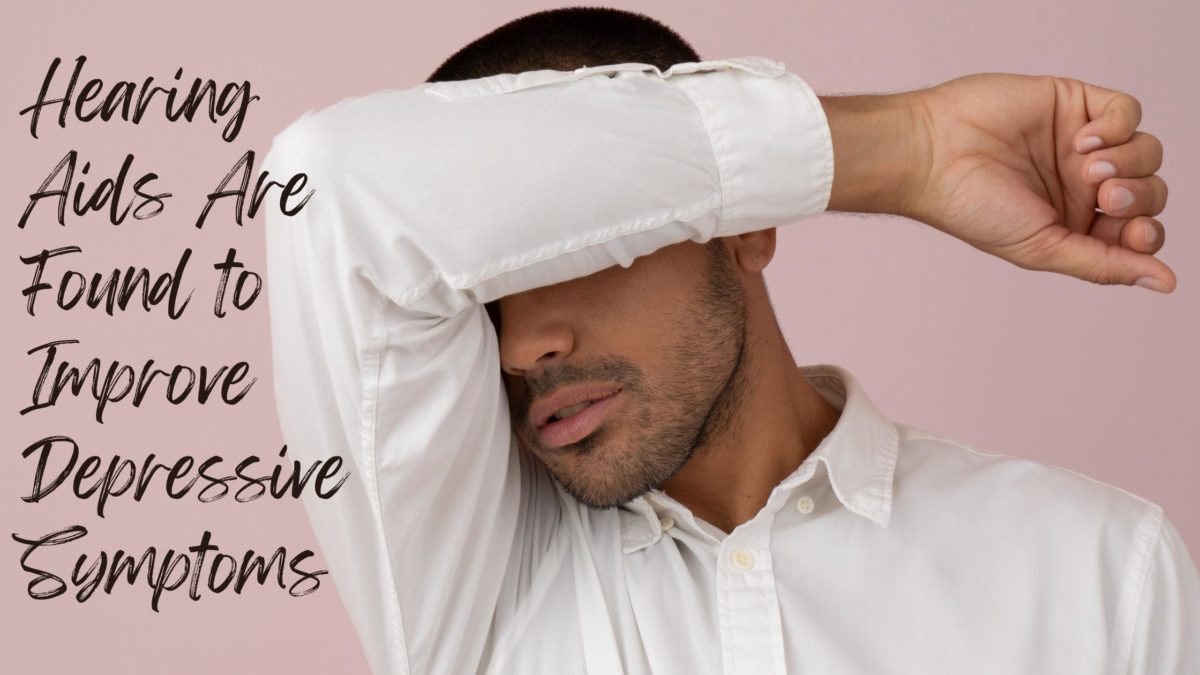Hearing loss is one of the leading chronic health issues impacting Americans, with roughly one in eight people over the age of 12 showing signs of hearing loss in both ears. Among one the lesser-known effects of the hearing loss that often comes with age are a heightened risk of depression. This is an important aspect of the whole hearing health picture, particularly as depression rates are also high among older Americans in general.
Many people wait and silently suffer as they experience hearing loss. Instead, you can take charge of your hearing health by getting a simple hearing test done, and investigating treatment options can not only help to restore a better experience of hearing, but recent studies show that they lessen instances of depression, too.
Prevalence of hearing loss
The most common type of hearing loss is that associated with aging, exposure to excessive noise, injuries, illness, prescription medication, or genetic conditions. We call this condition Sensorineural hearing loss, defined by damage to the inner ear or auditory nerve. It is permanent and irreversible, though it can be treated in many cases.
Age remains the greatest predictor of hearing loss, as damage to the fine cells of the inner ear happens naturally via the aging process. Older people are also more likely to have had repeated exposure to excessive noise, and many people demonstrate a mix of age-related and noise-induced hearing loss.
By the age of 65, one-third of your peers will have hearing loss. That number increases dramatically as the years pass, so much so that by the time we are 85, approximately 50% of us will have hearing loss.
Hearing loss is linked with depression
We’ve long known the link between hearing loss in older adults and depression. Our sense of hearing is vital to communicating in our verbal world. When hearing loss goes untreated, people are likely to feel frustration, exhaustion and tend toward self-isolation. It’s a combination that is detrimental to our mental and emotional health. Moreover, we lose our ability to easily connect with others — while our sense of belonging and important relationships can fall victim to hearing loss.
In a 2019 study published in JAMA Otolaryngology-Head & Neck Surgery, researchers reported that people with age-related hearing loss had more symptoms of depression than those without. The more serious the hearing loss, the greater the risk of depression. Participants with mild hearing loss were nearly two times as likely to report symptoms of clinical depression. People with severe hearing loss had an even more profound risk of depression.
Wearing hearing aids can make a difference
Hearing aids are embraced by those that wear them. Most hearing aid wearers are highly satisfied with their investment and a study from the Better Hearing Institute relayed that 90 percent of those who wore hearing aids reported a significant improvement in their quality of life.
What’s more, medical studies confirm anecdotal evidence. In a 2016 study that explored the connection between intervening in hearing loss with hearing aids and its impact on feelings of depression, researchers conclusively found that hearing aids do lessen depression.
After implementing hearing aids, participants were evaluated using the 15-item Geriatric Depression Scale. After only six months, they were significantly less likely to express symptoms of depression.
Early signs of hearing loss
One of the confounding aspects of age-related hearing loss is its difficulty to self-diagnose. Most of the time, our friends and family members notice the changes in our behavior before we even notice our hearing loss.
The early symptoms mostly surround problems with speech clarity. You may have trouble understanding people when they speak, scenarios with lots of background noise may be particularly challenging. You might also begin to avoid telephone conversations or become reliant upon closed captioning to catch dialogue on television shows and films watched at home.
Schedule a hearing test today
Don’t wait to address hearing loss. Schedule a hearing consultation today where our team of hearing health professionals can guide you through the easy process of undergoing a hearing test. From there, we’ll work with you to determine if you’re a good candidate for hearing aids or another type of treatment. We’re here to get you started on the path to your healthiest hearing experience possible!

